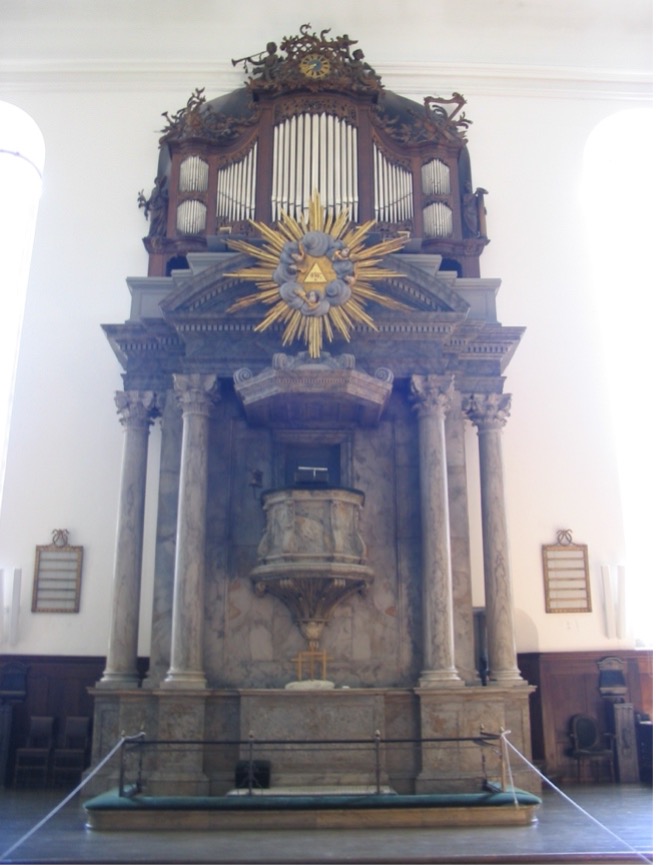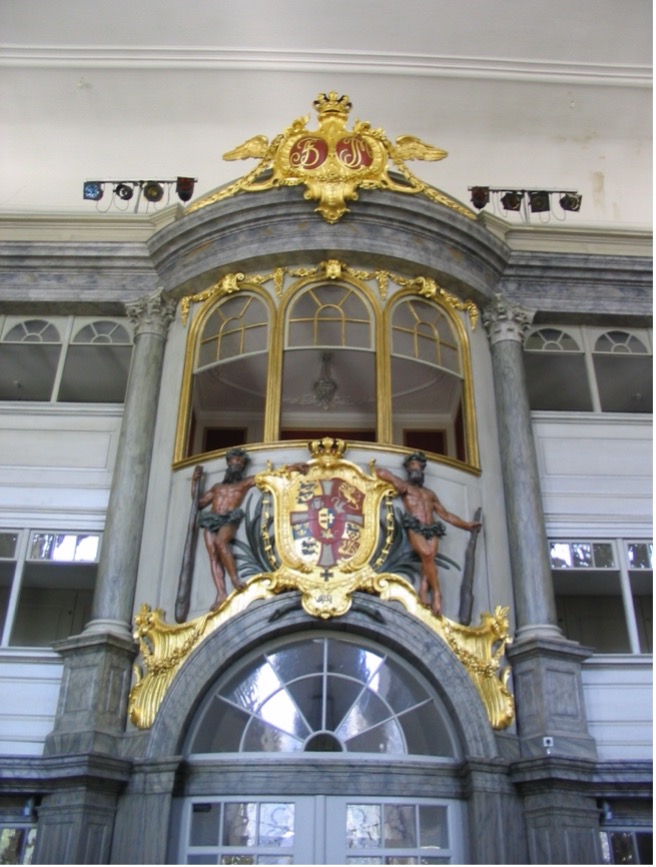
Do të merrni një e-mail mujor me burime të reja, përditësime, informacione të ngjarjeve dhe përmbajtje të tjera të kuruara për të ju ndihmuar të jetoni një jetë ku besimi ju profesoni dhe ligji që praktikoni janë të lidhur në mënyrë integrale. Shënim: ne i urrejmë spamet dhe e marrim privatësinë tuaj jashtëzakonisht seriozisht. Të lutem shiko. Politika E Privatësisë për të kuptuar se si i përdorim dhe i mbrojmë të dhënat e tua).
Whether you have read them or not, your instincts about the role of law in society and its relationship to the Christian faith has probably been shaped by one of four theologians: St. Augustine, St. Aquinas, Martin Luther or John Calvin. Our series this autumn — Theologians and the Law — will look at their most important ideas about law and may even encourage you to be brave enough to read them for yourself.
Martin Luther was not a systematic thinker, he was a tub-thumping revolutionary. His big idea was that the Law is not the Gospel. The good news is that God offers forgiveness by grace, through faith in the saving power of the death and resurrection of Jesus Christ. Law is not the Gospel: if the explicit or implicit message preached by the Church is that salvation is a matter of living a moral life or of earning favour from God, then it is proclaiming a false message, one which underestimates the magnitude of God’s holiness and the extent of God’s mercy.
In order to understand Luther’s revolution you need to realise just how much the mediaeval Church had turned into a parallel State, not just announcing what morality demanded but policing and enforcing moral rules as laws. In medieval Germany the Church claimed exclusive personal jurisdiction over monks and priests, Jews, Muslims and heretics, pilgrims, students, crusaders, sailors and foreign merchants, widows, orphans and the poor. It also claimed subject matter jurisdiction in other cases over all disputes relating to church property and tithes; sex, marriage and family relations; probate; oaths; and moral offences against God, one’s neighbour or oneself (Witte Law and Protestantism, p.35-36). There was a whole Church law of crime and tort (delict) and a system of Church courts which either ran alongside or to the exclusion of the ordinary civil courts.
As well as handing out penalties for breaches of its canon laws, the Church also awarded prizes to those who paid for them. Practices such as papal indulgences, penance and pilgrimage had created the impression that getting to heaven was simply a matter of having more credits than debits with God. For some people, the belief that they had to get to heaven by their own efforts led to a life of constant anxiety about whether they would ever be good enough for God. Other people felt that they could ignore some of God’s commands provided they went to Mass often enough or that they could buy their way into heaven. Luther saw these attitudes as the same as those of the Jews which Paul was criticising in his letters to the Galatians and to the Romans. Luther sought to return to the teaching of Paul and Augustine that eternal life is a gift of God’s grace and that those who attempt to acquire it by obedience to God’s law will fail.
Luther pointed to John 1:17 “The law was given through Moses; grace and truth came through Jesus Christ.” Like Aquinas, Luther uses the term “law” in a broad sense. For Luther, the law includes both the moral law (morality) and the civil law (positive laws made by rulers). The primary purpose of the law in both its forms is to show us how far short we fall from the perfect standard of God’s will. This is the theological use of the law, which reveals to sinners their need for repentance and faith in Christ. There is also a civil use of the law in restraining sin through the threat of punishment, and an educational use of the law (this time primarily the moral law) which guided both sinners and saints by showing them the right way to live.
Luther draws a sharp separation between the roles of the Church and of the State. The Church carries the authority of the Word, proclaiming love, grace and freedom; the State wields the authority of the Sword, imposing coercion, bondage, and restraint. Luther was adamant that the Church fundamentally distorted its message of love by taking coercive control over people’s lives through law. The positive implications of Luther’s revolution were a renewed emphasis on the Gospel as the expression of God’s love, though which people are called but not compelled to believe, leaving room for the work of the Holy Spirit and the conviction of personal consciences. Another important legacy was Luther’s affirmation that there is a variety but not a hierarchy of Christian callings. The calling to be a butcher, a milkmaid or a shop-keeper is no less of a holy calling than the calling to become a monk or a bishop.
Luther’s more controversial legacy was the two kingdoms doctrine. Luther insisted that the Church needed to get out of the business of law enforcement. His initial writings in the 1520s showed contempt for law and an insistence that the Bible alone was enough to rule people’s lives. Such radical Biblicism proved to be a recipe for social chaos. Frightened by the Peasants War (1524-25 AD), Luther came to realise that law was not just a necessary evil but an essential blessing in this earthly life. Luther’s doctrine of the two kingdoms can encourage a tendency to see the existing structure of things as a sphere of God’s love and mercy, so that the crude facts of exploitation and suffering are sometimes overlooked.” (Forrester, Christian Justice and Public Policy, p.34).
Luther’s view of the role of political law can be seen as a development of an Augustinian view of law, which regards the role of political law as primarily coercive, its potential for promoting true virtue as limited, and the pursuit of an expansive vision of the common good as having the potential to override what are properly individual areas of responsibility and choice. In contrast to the Thomist enthusiasm about law as a framework for common endeavour within which human beings can flourish, Luther can be seen as an advocate for small government and individual responsibility.
The danger in Luther’s thought was the possibility that the Church would come to think of politics and law as an area unaffected by Christ’s teaching. By the end of his life, Luther presented God’s will in terms of creation and redemption. Creation includes the natural law, which is to be the primary guide for the State as it enacts and enforces positive law. The natural law shapes what Lutherans call the orders of creation, that is to say patterns such as marriage and family life, job roles, and other structures arising from nature and reason. Those who are called to fulfil particular roles or stations in life should obey the natural moral rules appropriate to those stations (this aspect of Lutheran teaching is called station ethics). Positive law should punish and deter violations of those ethical standards and orders. Redemption it seems, and the shaping of moral standards by the example of Jesus and by the teaching of the Church, are excluded from the picture.
One of the worries of Luther’s critics is that by drawing such a sharp distinction between Law and Gospel, Luther effectively neuters the challenge of Christ to secular government. The risk is that Law is left unaffected by the Gospel, which leads easily to a situation in which Christian morality is merely private morality, with nothing to say in the public square. Himself no radical revolutionary, the twentieth century American theologian Reinhold Niebuhr criticised Luther for recognising “no obligation … upon the Christian to change social structures so that they might conform more perfectly to the requirements of brotherhood” (The Nature and Destiny of Man Vol.2 p.192-3). This, however, was not Luther’s intention. He was clear that the Church had a key responsibility to preach and teach the law of God and to denounce injustice, tyranny and abuse (Luther’s Works, Vol. 45 pp.105ff; 35:106ff.).
Again, in order to understand the balance Luther was trying to achieve one needs to realise the political situation of the day. In many places across Europe, the Church was not just a parallel State, the Church was the State. The Pope was the ruler of significant portions of Italy, and prince-bishops could be found elsewhere in Europe (nearly half of the 364 German-speaking territories of the Holy Roman Empire) and in Durham in England. The boundaries between the Church and the State were thoroughly confused.
However, whilst Luther’s ideas were intended to re-focus the Church on its mission of proclaiming the Gospel, secular rulers interpreted Lutheran doctrine as providing an opportunity to cut the Church down to size. In the face of Catholic hostility in central Europe,
the Lutherans needed someone to guarantee the new understanding of the Church. Over time, and after Luther’s death, the secular rulers who now guaranteed the protection of the Lutheran Church had the upper hand. This is illustrated most vividly in the architecture of the Christians Kirke, a church in Copenhagen, built when the Lutheran kingdom of Denmark had declared itself to be an absolute monarchy. The pulpit is halfway up the wall, looking over the congregation who sit listening to God’s word. But even higher up the opposite wall, directly in front of the preacher, in the equivalent of an opera box is where the king would sit. An eye in a triangle in the ceiling tells us that the triune God is watching over everyone, but it is clear from the architecture that the king is answerable only to God, whereas it is the job of the king that the preacher sticks to preaching the true Lutheran gospel.



The secular ruler was “God’s vice-regent called to elaborate divine law and to reflect divine justice in the earthly kingdom”, discerning how to translate the Ten Commandments and the natural law into practical prescriptions suitable for local conditions (Witte, Law and Protestantism, p.8). In the Lutheran context, this seemed to imply that the secular ruler had the power to decide what the Church taught, or at least to oversee it, in a manner which the Roman emperors Constantine and Justinian had tried to do.
Modernity cannot be understood without grasping the impact of Luther’s revolution. His strengths were his emphasis on grace and on vocation, his weaknesses the way in which his ideas could be twisted to mute the public dimensions of the gospel of the reconciliation of all things in Christ Jesus.
Do të merrni një e-mail mujor me burime të reja, përditësime, informacione të ngjarjeve dhe përmbajtje të tjera të kuruara për të ju ndihmuar të jetoni një jetë ku besimi ju profesoni dhe ligji që praktikoni janë të lidhur në mënyrë integrale. Shënim: ne i urrejmë spamet dhe e marrim privatësinë tuaj jashtëzakonisht seriozisht. Të lutem shiko. Politika E Privatësisë për të kuptuar se si i përdorim dhe i mbrojmë të dhënat e tua).